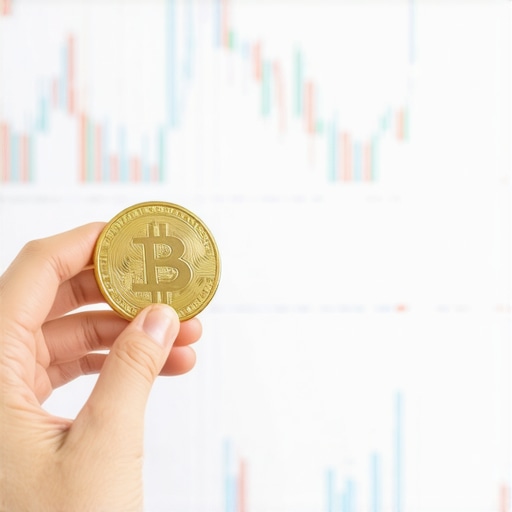Understanding the Importance of Selecting Quality Gold Coins for Investment
Investing in gold coins can be a brilliant strategy for wealth preservation and diversification. However, not all gold coins are created equal, and selecting quality pieces is crucial for maximizing your investment potential. In this guide, we will explore essential factors to consider when choosing gold coins for investment purposes, helping you make informed decisions that align with your financial goals.
Key Factors to Consider When Choosing Gold Coins
Before diving into the specifics of gold coins, it’s essential to understand the factors that influence their value and desirability. Here are the primary considerations:
1. Coin Composition and Purity
The purity of gold coins is one of the most critical aspects that affect their value. Most investment-grade gold coins are made from .9999 fine gold, meaning they contain 99.99% pure gold. Popular examples include the American Gold Eagle and the Canadian Gold Maple Leaf. When selecting coins, ensure you check the purity level, as it directly correlates with the coin’s liquidity and resale value.
2. Coin Type and Minting
Gold coins come from various mints and can include bullion coins, collector coins, and numismatic coins. Bullion coins, such as those mentioned above, are primarily valued for their gold content, while collector coins may carry additional value due to rarity or historical significance. Understanding the different types of gold coins and their specific markets can enhance your investment strategy.
3. Market Demand and Trends
The demand for gold coins fluctuates based on market trends, which can greatly impact prices. Staying informed about current trends in gold supply and demand dynamics will help you make timely purchases. For example, during economic instability, demand for gold typically rises, making it a favorable time to invest.
4. Grading and Condition
The condition of the coin, often assessed through grading systems, affects its value significantly. Coins in excellent condition or those that have been graded by reputable organizations tend to fetch higher prices. Familiarizing yourself with grading standards, such as those outlined by the American Numismatic Association, can help you determine the quality of a coin before purchasing. Resources on grading coins can provide additional insights.
5. Authenticity and Verification
When investing in gold coins, authenticity is paramount. Ensure that the coins you purchase come from reputable dealers and are accompanied by certification of authenticity. This not only protects your investment but also ensures you can resell the coins without issues in the future. Familiarity with common misconceptions about gold can further safeguard your investment choices.
Understanding Market Conditions for Gold Coins
To make informed decisions regarding gold coin investments, it’s essential to understand the broader market conditions that influence their value. Factors such as economic stability, inflation rates, and geopolitical events can significantly impact gold prices. When assessing the market, consider reviewing how global events shape gold demand, as these can provide insights into potential price fluctuations.
6. Timing Your Investment
Timing can play a crucial role in maximizing your investment returns. Observing trends in gold price volatility, as outlined in gold price volatility tips, can help you identify the best moments to buy. For instance, investing during a dip in prices or when market demand increases can lead to more significant gains. Additionally, understanding seasonal patterns in gold demand can guide your timing strategy.
7. Diversifying Your Gold Coin Portfolio
While focusing on quality gold coins is essential, diversifying your portfolio can further enhance your investment strategy. Consider including a mix of different types of gold coins, such as bullion coins and collectible coins, to spread risk. This approach aligns with the principles discussed in the ultimate guide to different types of gold investments, ensuring your portfolio remains resilient against market fluctuations.
Building Relationships with Reputable Dealers
Establishing connections with trustworthy dealers can significantly enhance your gold coin investment experience. Reputable dealers often provide valuable insights into market trends and can guide you in selecting high-quality coins. When evaluating dealers, consider those who are members of recognized organizations, such as the Professional Numismatists Guild. This affiliation assures you of their commitment to ethical practices and expertise in the gold market.
8. Utilizing Online Resources for Research
The digital age has made information more accessible than ever, enabling investors to conduct thorough research before making purchases. Websites dedicated to gold investment provide valuable resources, including pricing trends, expert opinions, and market analyses. Resources like evaluating current gold market trends can help you stay informed and make educated choices.
9. Understanding the Tax Implications
When investing in gold coins, it’s crucial to be aware of the tax implications associated with your purchases. In many jurisdictions, gold investments may be subject to capital gains tax when sold. Familiarizing yourself with the tax regulations in your area can help you plan your investment strategy more effectively, ensuring that you maximize your returns while remaining compliant with the law.
Conclusion: Making Informed Decisions for Success
Ultimately, selecting quality gold coins for investment involves a combination of research, market understanding, and strategic planning. By considering key factors such as coin composition, market trends, and dealer reputation, you can make informed decisions that align with your financial goals. As you continue to explore the world of gold investments, staying educated and adaptable will empower you to navigate the dynamic market successfully.
The Role of Economic Indicators in Gold Coin Valuation
Understanding economic indicators is paramount when investing in gold coins. Elements such as inflation rates, interest rates, and GDP growth can heavily influence gold prices. As inflation rises, the value of currency typically declines, which often drives investors towards gold, perceived as a safe haven. Keeping an eye on the relationship between gold and inflation can help you better time your investments and identify optimal buying opportunities.
10. Monitoring Global Economic Trends
Global events, including geopolitical tensions and economic crises, can lead to increased demand for gold. For example, during periods of uncertainty, such as trade wars or conflicts, investors flock to gold as a protective measure. By monitoring global events that influence gold demand, you can gain insights into potential price movements and make proactive investment decisions.
11. Exploring Different Gold Investment Vehicles
While gold coins are a popular choice, exploring various gold investment vehicles can enhance your strategy. Gold ETFs and mining stocks offer different risk profiles and potential returns. For instance, investing in ETFs, as discussed in exploring gold ETFs, provides diversification without the hassle of physical storage. Moreover, understanding the nuances of gold mining stocks can also open up new avenues for profit, as these stocks often react differently to market conditions compared to physical gold.
Building a Comprehensive Gold Investment Portfolio
To maximize your returns, consider building a comprehensive gold investment portfolio that includes a mix of coins, ETFs, and stocks. This diversification strategy can help mitigate risks while capitalizing on the unique benefits of each investment type. Engaging with resources on evaluating your gold investment strategy can provide deeper insights into constructing a balanced portfolio that aligns with your risk tolerance and investment goals.
12. Staying Informed with Market Analysis
Regularly analyzing market trends and forecasts is essential for successful investing in gold coins. Utilize online platforms and financial news services to stay updated on the latest developments. For instance, insights from expert insights on gold price forecasts can help you anticipate market movements. By staying well-informed, you can adjust your strategies accordingly and make timely decisions that enhance your investment outcomes.
13. The Importance of Setting Investment Goals
Establishing clear investment goals is vital for long-term success. Whether aiming for wealth preservation or capital appreciation, having defined objectives will guide your investment choices. Consider your timeline, risk tolerance, and desired returns when setting these goals. Aligning your strategy with resources like the reasons to buy gold can reinforce your commitment to your investment plans.
Understanding the Impact of Supply and Demand on Gold Prices
The principles of supply and demand play a crucial role in gold pricing. When demand exceeds supply, prices typically increase. Conversely, when supply surpasses demand, prices can fall. Keeping track of current trends in gold supply and demand is essential for anticipating market shifts and planning your purchases strategically.
14. Engaging with Gold Investment Communities
Joining gold investment communities can provide valuable insights and support from fellow investors. Online forums and social media groups dedicated to gold investing allow you to share experiences and gain knowledge about market trends. Engaging in discussions can enhance your understanding and help you navigate the complexities of gold investments. Additionally, consider exploring how gold serves as a hedge against market shocks within these communities for a broader perspective on your investment strategy.
Exploring the Benefits of Investing in Gold Coins
Gold coins represent a tangible asset that can provide significant advantages in your investment strategy. They not only serve as a hedge against inflation but also offer a unique opportunity for diversification within your portfolio. Understanding the benefits of gold investing allows you to appreciate why these coins have been favored by investors throughout history.
15. Assessing the Historical Performance of Gold Coins
When considering gold coins as an investment, it’s essential to assess their historical performance. Tracking how specific coins have fared during different economic conditions can provide insights into their resilience and potential for appreciation. Resources discussing gold price forecasts can help you understand historical trends and project future performance.
16. The Role of Coin Rarity and Demand
Rarity plays a critical role in the value of gold coins. Coins that are produced in limited quantities or that have historical significance often command higher prices. Understanding the dynamics of coin rarity can help you identify which pieces might appreciate the most over time. Additionally, staying informed about current demand trends will aid you in making more strategic purchasing decisions.
Understanding the Costs of Investing in Gold Coins
Investing in gold coins is not without its costs. From premiums over spot prices to potential storage fees, understanding these expenses is vital to calculating your overall investment returns. Familiarize yourself with the costs associated with gold investments to ensure that your strategy is financially sound.
17. Evaluating Premiums on Gold Coins
Premiums on gold coins can significantly affect your investment. These are the additional costs above the market price that you pay when purchasing coins. Factors influencing premiums include the coin’s rarity, demand, and condition. To maximize your investment, consider evaluating how to select gold coins wisely to minimize unnecessary premiums.
18. Storage and Insurance Considerations
Proper storage of your gold coins is crucial for protecting your investment. Whether you choose a safe deposit box or a home safe, ensure that your storage solution is secure and insured. Assessing the benefits of physical gold investments can also guide you in understanding how to best protect your assets.
Strategies for Selling Gold Coins
As important as purchasing gold coins is knowing when and how to sell them. Developing a selling strategy can help you maximize returns when the time comes. Familiarize yourself with the trends in gold prices to determine optimal selling moments.
19. Identifying the Right Time to Sell
Market conditions can heavily influence your decision to sell gold coins. Keeping an eye on fluctuations in gold price volatility will provide insights into potential selling opportunities. Additionally, consider the broader economic landscape, as events such as inflation or geopolitical tensions can impact gold prices.
20. Choosing the Right Marketplace
When it comes time to sell your gold coins, selecting the right marketplace can make all the difference. Research various platforms, whether online or through local dealers, to ensure you are getting the best price for your coins. Resources on selling your gold coins can guide you through this process effectively.
Frequently Asked Questions (FAQs) About Gold Coin Investments
1. What are the best gold coins to invest in?
The best gold coins to invest in typically include those that are widely recognized and have high liquidity, such as the American Gold Eagle, Canadian Gold Maple Leaf, and South African Krugerrand. These coins are made from high-purity gold and are often sought after by investors.
2. How can I determine the value of my gold coins?
The value of gold coins is determined by their gold content, market demand, and condition. You can assess their value by checking current gold prices, reviewing recent sales of similar coins, and considering any additional premiums based on rarity or collector demand.
3. Are gold coins a good investment during economic downturns?
Yes, gold coins are often seen as a safe haven during economic downturns. Their value can remain stable or even increase when traditional investments, such as stocks, may decline, making them a valuable addition to a diversified investment portfolio.
4. Do I need to pay taxes on gold coin investments?
Yes, in many jurisdictions, gold coins are subject to capital gains tax when sold at a profit. It is essential to understand the tax regulations in your area and keep accurate records of your purchases and sales to ensure compliance.
5. How should I store my gold coins?
Gold coins should be stored securely to protect them from theft or damage. Options include using a safe deposit box at a bank, a home safe, or specialized storage facilities that offer insurance against loss. Ensure that your storage solution is appropriate for the number and value of your coins.
6. Can I invest in gold coins through my retirement account?
Yes, certain retirement accounts, such as a Self-Directed IRA, allow for investment in physical gold coins. However, there are specific regulations and requirements to adhere to, so it’s advisable to consult with a financial advisor to ensure compliance.
7. What are the risks associated with investing in gold coins?
Risks include price volatility, market fluctuations, the potential for counterfeit coins, and costs related to storage and insurance. It is crucial to conduct thorough research and remain informed about market conditions to mitigate these risks.
8. How can I sell my gold coins for the best price?
To sell gold coins effectively, research the current market value, compare offers from multiple dealers, and consider selling during periods of high demand. Utilizing online marketplaces or auction sites can also provide competitive pricing.
9. Are there any advantages to buying gold coins over gold bullion?
Gold coins may offer advantages such as higher collectability, potential for appreciation in value beyond just gold content, and easier liquidity. They can also be more appealing for collectors compared to standard bullion bars.
10. How do I know if a gold coin is authentic?
To verify a gold coin’s authenticity, purchase from reputable dealers who provide certificates of authenticity. Additionally, familiarize yourself with the specific characteristics of genuine coins, such as weight, dimensions, and minting marks, and consider using third-party grading services for assurance.
Authority Resources for Gold Coin Investment
To further your knowledge and ensure informed decision-making in gold coin investments, consider the following reputable resources:
- Numismatic Guaranty Corporation (NGC) – Provides grading and authentication services for coins.
- Professional Coin Grading Service (PCGS) – Offers coin grading and valuation services, along with educational resources.
- Kitco – A trusted source for precious metal prices, market news, and investment guides.
- MarketWatch – Offers financial news and analysis, including updates on gold prices and economic trends.
- Investopedia – Features articles on investment strategies, including the benefits and risks of gold investing.
- BullionVault – A platform for buying, selling, and storing gold and silver, with educational resources available.
Conclusion: Your Journey in Gold Coin Investment
In conclusion, investing in gold coins can be a rewarding strategy for wealth preservation and diversification, given the right approach. By understanding key factors such as market conditions, coin authenticity, and effective selling strategies, you can navigate the complexities of the gold market successfully. Remember to utilize trusted resources and stay informed to maximize your investment potential. As you embark on your journey in gold coin investment, may your decisions lead to fruitful outcomes that align with your financial aspirations.









